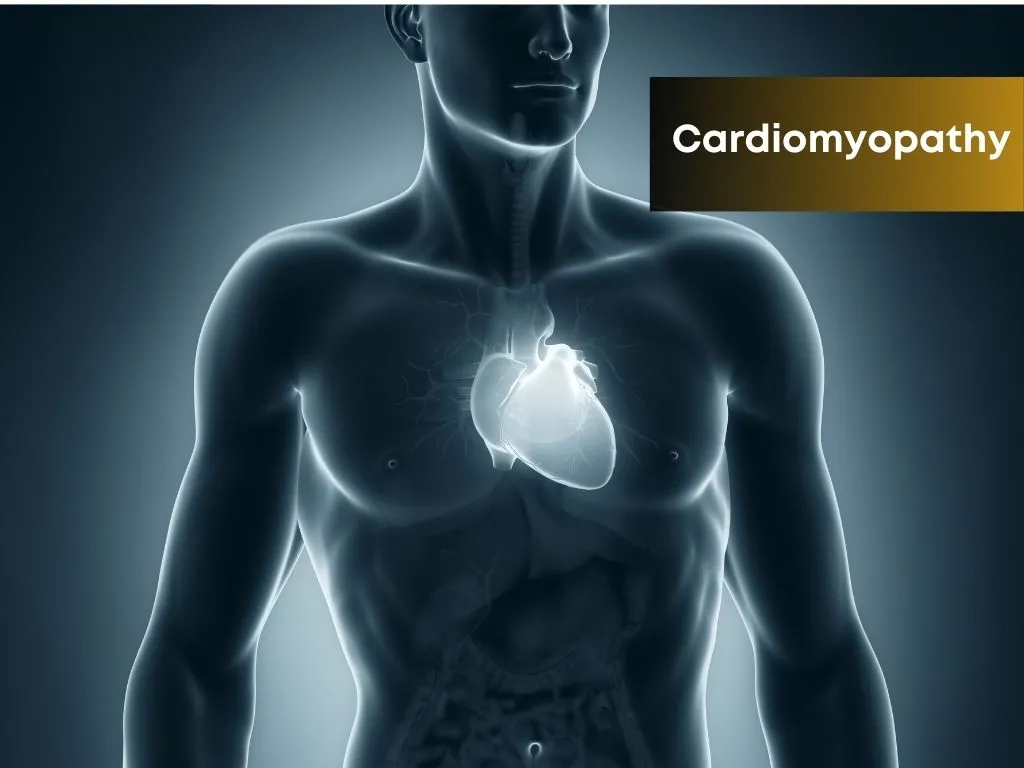Overview
There are several types of cardiomyopathy, including:
Dilated CardiomyopathyHypertrophic CardiomyopathyRestrictive CardiomyopathyArrhythmogenic Right Ventricular Dysplasia
Causes
However, some common factors and conditions that can contribute to the development of cardiomyopathy include:
GeneticsViral InfectionsHigh Blood Pressure (Hypertension)Coronary Artery DiseaseMetabolic DisordersChemotherapy and Radiation TherapyPregnancyIdiopathic
Symptoms
Some common symptoms may include:
Shortness of breath (dyspnea)Fatigue and weaknessSwelling (edema) in the legs, ankles, feetIrregular heartbeat (arrhythmia), palpitationsChest pain or discomfort, especially during physical activity.Dizziness, lightheadednessDifficulty sleeping, especially due to shortness of breathSudden weight gain due to fluid retention.Reduced ability to exercise or perform physical activities.Coughing or wheezing, especially at night or when lying flat
Treatment: Modern Medicine
Medications:
Angiotensin-Converting Enzyme (ACE) Beta-blockers Diuretics (water pills) Aldosterone antagonists Antiarrhythmic Anticoagulants or antiplatelet
Implantable Devices:
Implantable Cardioverter-Defibrillator (ICD)Cardiac Resynchronization Therapy (CRT)
Surgical Procedures:
Septal Myectomy or alcohol septal Left Ventricular Assist Device (LVAD) Heart transplantation
Treatment: Traditional Medicine
Dietary Modifications:
Following a heart-healthy diet.Limiting sodium intakeAvoiding or limiting of alcohol and caffeine.Monitoring fluid intake
Herbal Remedies
Examples include,
Hawthorn, Garlic, Coenzyme Q10 (CoQ10), Omega-3 fatty acids.
Caution
Alcohol AbuseSmokingIllicit Drug UseNever substitute medical advice
Prevention
Maintain a Healthy WeightFollow a Heart-Healthy DietExercise RegularlyManage Blood PressureControl Blood Sugar
 Nalamaree Team
Nalamaree Team





















.jpg.webp)
